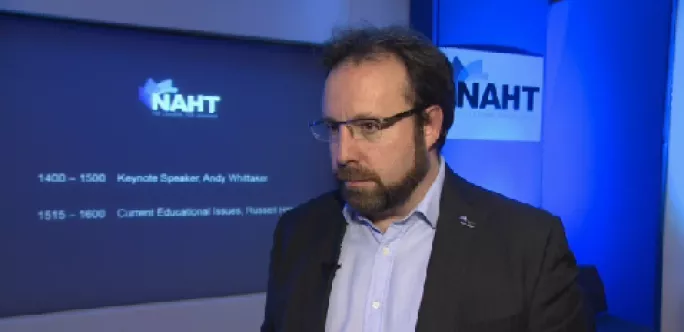Drop ‘outstanding’ rating, Ofsted told
The leader of the largest headteachers’ union has called for the end of Ofsted’s “outstanding” grade as part of a radical plan for reforming the watchdog.
The six steps to overhauling the inspection system outlined by Russell Hobby, general secretary of the NAHT union, also include ending Ofsted’s school improvement role and handing over the inspection of child safety in schools to local authorities.
But it is his proposal for ending the existing four inspection grades that is the most controversial. In a blog published today, Mr Hobby calls for the multiple grades to be eliminated in favour of a straightforward “good/requires improvement” judgement.
The headteachers’ leader told TES that the “inadequate” verdict would remain for schools deemed to require improvement that failed to achieve “good” after three further inspections. But that is different to the status quo, where Ofsted inspectors can immediately deem schools to be inadequate.
But he said the top “outstanding” rating from Ofsted should be removed altogether. “A regulator should not define excellence,” he writes.
“Schools should still aspire to excellence, but it should not be the regulator that defines it. We need to give excellence back to the profession where it belongs.”
A similar proposal was made by the Association of School and College Leaders (ASCL) last year.
Mr Hobby wants Ofsted’s oversight of schools confined primarily to teaching and education. Under his proposals, local authorities would conduct twice-yearly safeguarding and financial audits in every school.
He also argues that the watchdog’s school improvement role should be scrapped. “This is a conflict of interest and uses up resources,” Mr Hobby writes. “Inspection should lead to improvement but the inspectors are not the ones to do it.”
Some of his other suggestions already appear to be in line with Ofsted’s thinking. Mr Hobby is calling for a compulsory system of bi-annual peer reviews for schools rated as good, which would be moderated by Ofsted.
“Ofsted becomes the hygiene inspector and peer review provides the restaurant critic,” he explains.
His recommendations chime with those of Sean Hartford, Ofsted’s national director of schools, who told the ASCL’s annual conference on Friday that the inspectorate supported peer review.
“If Ofsted is still around in 10 years’ time, the way we inspect and what we inspect would be very different,” he said. “I would see Ofsted’s role being to moderate judgements and assess the robustness of peer-review arrangements - making sure they weren’t just cosy fireside chats between colleagues.
“As long as leaders are well trained and knowledgeable in review techniques, and rigour is maintained, the idea of schools evaluating each other’s performance is something we strongly support as the way forward.”
Mr Hobby is also calling for every Ofsted school inspection to be led by Her Majesty’s Inspectors, with the rest of the team made up of serving school leaders, another point which Mr Harford suggested the watchdog was working towards.
“Our efforts to bring on board a far higher proportion of current practitioners to carry out inspections could be seen as a key staging post on this journey towards a fully realised self-improving system,” the Ofsted official told heads on Friday.
The final step proposed by Mr Hobby is to stop schools being subject to separate “shadow” education inspections from Department for Education academy brokers and local authorities.
“These distract school leaders from focusing on pupils,” he writes.
An Ofsted spokesman said the watchdog’s move to replace the “satisfactory” grade with “requires improvement” in 2012 had “undoubtedly galvanised the system to do significantly better”, and “significant changes” to inspection being implemented in September - including introducing shorter but more frequent inspections for good schools - had “received considerable support from the sector”.
“We very much support the move towards schools evaluating each other’s performance, and so long as school leaders are well trained and knowledgeable in review techniques, it is something we would welcome as a way of raising standards.
“Ofsted will continue to work with NAHT and others to ensure that the changes we’re making achieve our shared goals and ambitions of producing a world-class education system,” he added.
Keep reading for just £1 per month
You've reached your limit of free articles this month. Subscribe for £1 per month for three months and get:
- Unlimited access to all Tes magazine content
- Exclusive subscriber-only stories
- Award-winning email newsletters




